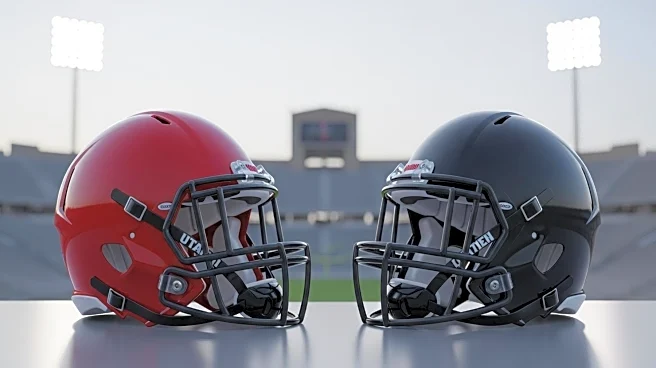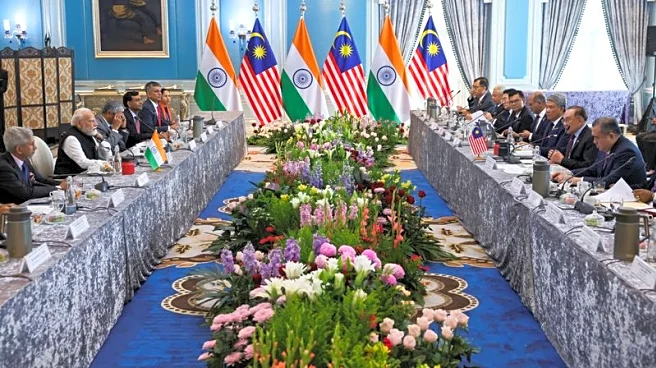What is the story about?
What's Happening?
Steve Smith, a former standout player for the University of Utah, has publicly praised the Utah Utes' recruiting strategy, contrasting it with that of Texas Tech. Speaking on the 'Big Noon Kickoff' show, Smith highlighted Utah's approach to building their roster through traditional recruiting methods rather than relying on Name, Image, and Likeness (NIL) deals. The Utes have secured the 39th-best recruiting class for 2025, according to 247Sports, with a roster primarily composed of three-star recruits. In comparison, Texas Tech's class is ranked 51st, featuring a mix of four-star and three-star recruits. Smith also predicted a victory for Utah in their upcoming game against Texas Tech, citing the team's strong start to the season and the performance of junior quarterback Devon Dampier.
Why It's Important?
The comments by Steve Smith underscore a significant debate in college sports regarding the impact of NIL deals on recruiting. Utah's emphasis on traditional recruiting methods may appeal to those who value athletic development and team cohesion over financial incentives. This approach could influence other programs to reconsider their recruiting strategies in the evolving landscape of college athletics. The success of Utah's strategy, as evidenced by their strong start to the season, could bolster their reputation and attract more talent in the future. Conversely, Texas Tech's reliance on higher-rated recruits through NIL deals highlights the competitive nature of college sports recruiting, where financial incentives are becoming increasingly prevalent.
What's Next?
The upcoming game between Utah and Texas Tech will serve as a test of the effectiveness of their respective recruiting strategies. A victory for Utah could validate their approach and potentially influence other programs to adopt similar strategies. Meanwhile, Texas Tech will aim to demonstrate the value of their investment in higher-rated recruits. The outcome of this game could have implications for future recruiting cycles and the broader discussion on the role of NIL in college sports.
Beyond the Headlines
The discussion around recruiting strategies also touches on broader ethical and cultural dimensions within college sports. The reliance on NIL deals raises questions about the commercialization of college athletics and its impact on student-athletes' academic and personal development. Utah's approach may resonate with those who advocate for preserving the amateur status of college sports, while others may argue that NIL deals provide necessary financial support for athletes. This ongoing debate could lead to policy changes and shifts in how college sports are structured in the future.
















